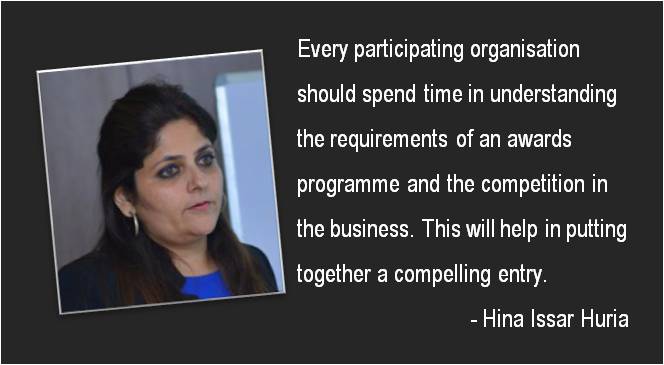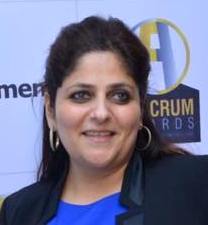I got introduced to public relations by accident in 1997. My professional journey helped me traverse many roles, from a junior client servicing executive to an in-sourced communications member managing the corporate communication cell of a newly launched life insurance company to the Process Head to the HR Head and then Head of Marketing of an independent consultancy to now as Awards Director for The Fulcrum Awards. I have been fortunate to experience many facets of public relations in last 19 years. It’s been nothing short of a roller coaster ride and I must admit that there have been no ups and downs but only exciting and exhilarating turns.
My journey with Fulcrum Awards commenced thanks to my previous job at a leading PR firm where one of my key responsibilities was to fuel learning on writing campaigns and applying for various Indian and global awards. Initially, I faced many disappointments and went through the blame game when the entries weren’t shortlisted or didn’t win.
What intrigued me the most, was the entire process of awards. Thus, when I was approached with the genesis of Fulcrum Awards, I jumped at the opportunity, as I wanted to delve deeper on the mechanism of awards.
Listed below are some of my learnings from the last two years as Awards Director of the Fulcrum Awards.
About the Jury: I have heard several people say that the Jury is biased and does not read entries. This is not true. I have worked with two sets of juries in the last two years and each chosen jury member is a known professional who has established credentials. I have seen jury members work late hours post their busy work schedules or at the expense of their personal time to evaluate submissions. The commitment, transparency and ethics that they display is insurmountable. They are aware that they have a huge responsibility towards the campaigns that are given to them for rating and the sword that hangs on the jury members is much sharper than the organisers.
Remember the credentials of the Jury members is such that they are stalwarts of our profession, hence, are peers or colleagues of many who submit entries. Their names are announced publicly thus to comment on them being biased, would be a big folly as they are under scrutiny anyways. Incidentally, such is the ethics of jury members at Fulcrum Awards, that if their consultancy wishes to send in entries, they relinquish themselves as jury members or if they do not have time to evaluate they step down.
About Jury Decisions: My entry made an impact at global awards, but I fail to understand why it wasn’t chosen for an Indian award? The answer to this question is simple. No two siblings are the same, so how can two award programmes and scoring procedures be the same. I have often witnessed consultancies simply rehashing their entries for submission, not realising that the requirements of different award programmes differ. Many times, I have witnessed entries being sent with logos and categories from another awards programme.
Unfortunately, teams start working on award entries only a few days before the deadline and sometime post the deadline, with an ask for extension and in both these scenarios, the outcome is a foregone conclusion. I have witnessed great campaigns not being selected by jury members, because the entry was submitted without paying any attention to details – including the submission process or the terms and conditions.
About the Entries: Entries are usually created by someone who may/may not be equipped to write an awards entry, but has been given the task anyway. Blockbusters are not made without the vision, guidance and supervision of a director.
Working and investing time on award entries is critical. The entries should be owned and cascaded down by the leader of the organisation. The organisation should spend time in understanding the requirements of the awards programme and the competition in the business and then put together a compelling entry. I have seen entries that have the backing of a leader, make an impact with jury members, irrespective of whether it wins or not. Thus, my recommendation is, consider awards as one the most cost effective way to market your organisation or even reward and recognise your teams.
The awards scenario has changed drastically in the last three years. Till 2014 any award would receive not more than 150 entries and that too from handful of consultancies. However, today any award of repute boasts of nothing less than 300+ entries submitted not only by consultancies of various sizes, but also from in-house communication teams – public and private. The onus is therefore on those writing and submitting entries to make the job of jury members less complex.
About the Awards: Read, discuss and understand what the organisers of the Fulcrum Award programme want from the entries. This is something I missed when I was filing submissions. Someone, who could just be there, to talk through my concerns on submissions entry format or categories. Thus the organisers of Fulcrum Awards have a dedicated Awards Director with PR background. Someone who is always ready to take calls at any odd hours and answer queries for the nominee.
The above mentioned are personal views of the author and do not necessarily represent the opinion of any organisation, individual or the publisher.



enjoyed reading it. this article was needed. we need to survive on trust and i know for one you would not be a part of anything that is not fair. keep up the good work.
Nice one Hina. Very useful.